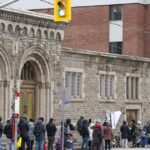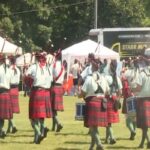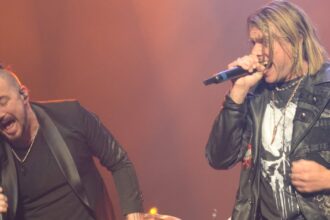In an age where digital entertainment dominates our attention spans, there’s something profoundly moving about returning to humanity’s oldest form of cultural transmission: storytelling. This past weekend, the Sault Ste. Marie Public Library transformed into a vibrant gathering space celebrating Indigenous oral traditions, reminding us all of the power of stories to bridge generations and preserve cultural identity.
The event, which drew a diverse crowd from across the community, featured Elder Shirley Horn sharing traditional Anishinaabe stories that have been passed down through countless generations. As Horn’s voice filled the room, there was a palpable shift in the atmosphere—phones were forgotten, conversations hushed, and an authentic connection formed between speaker and listeners.
“Stories are not just entertainment,” Horn explained to the captivated audience. “They are vessels of knowledge, teaching tools, and the living memory of our people.” This perspective reflects the profound difference between Indigenous storytelling and modern content consumption—these narratives serve as cultural anchors, embedding history, values, and spiritual teachings into engaging tales that resonate across ages.
What struck me most was the intergenerational nature of the audience. Children sat cross-legged near the front, their expressions alternating between wonder and concentration, while behind them, adults and elders listened with equal engagement. In our increasingly age-segregated society, such moments of shared cultural experience are becoming regrettably rare, yet they remain vital to community cohesion.
The library’s commitment to hosting such events speaks to a broader cultural shift happening across Canada. Public institutions are increasingly recognizing their role in reconciliation efforts and the importance of creating platforms where Indigenous voices can be amplified. As I’ve noted previously, this cultural reclamation process is essential not just for Indigenous communities but for enriching our collective understanding of Canada’s complex heritage.
Organizer and librarian Melissa Agawa emphasized that this wasn’t a one-off event but part of an ongoing series designed to center Indigenous perspectives. “We’re working to create spaces where traditional knowledge is valued and shared,” she told me. “This isn’t about tokenism—it’s about meaningful engagement with living cultures.”
The storytelling session was complemented by a display of Indigenous literature, craftwork, and resources that attendees could explore afterward. Many lingered, conversations sparked by the stories continuing among strangers now connected through shared experience. This organic community-building effect demonstrates why cultural programming remains one of our most powerful social tools.
What’s particularly significant about these events is how they challenge the persistent misconception that Indigenous cultures are historical artifacts rather than living, evolving traditions. The stories shared contained ancient wisdom yet addressed contemporary challenges—environmental stewardship, community responsibility, and finding balance in a complicated world.
As Canada continues navigating the complex process of reconciliation, events like these provide essential opportunities for both celebration and education. They invite non-Indigenous participants to listen and learn while creating affirming spaces for Indigenous community members to see their heritage honored in public settings.
The evening concluded with an interactive storytelling workshop where participants of all ages were encouraged to share their own stories. This collaborative element transformed the audience from passive consumers to active participants in cultural creation—precisely the kind of engagement that builds genuine understanding across different backgrounds.
As we face increasing polarization and digital isolation in society, perhaps there’s profound wisdom in returning to circle gatherings where stories flow freely between generations. In the words of one attendee who approached me afterward, “When you hear stories told this way, you realize how much we’ve lost by staring at screens instead of each other’s faces.”
The Sault Ste. Marie Public Library plans to continue this series throughout the year, with the next Indigenous storytelling event scheduled for next month. In a world of fleeting content and algorithmic recommendations, there’s something revolutionary about making time for stories that have survived centuries precisely because they matter. Perhaps that’s the most important opinion worth sharing—that slowing down to listen might be exactly what our accelerated culture needs most.
























